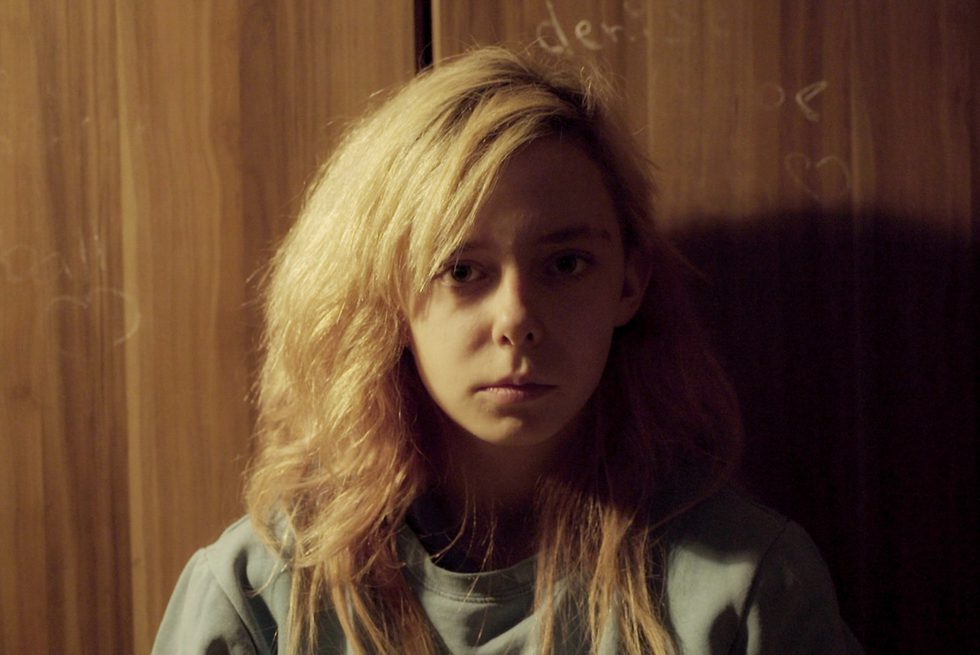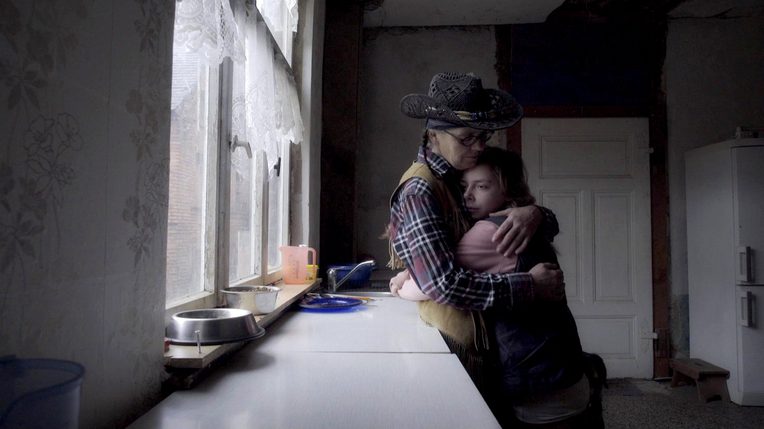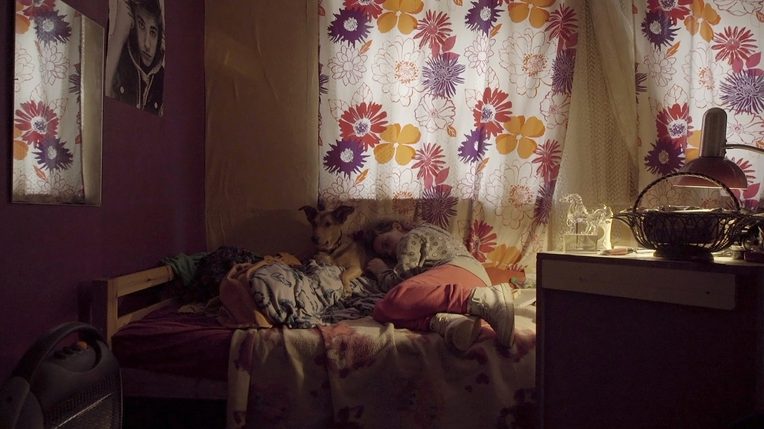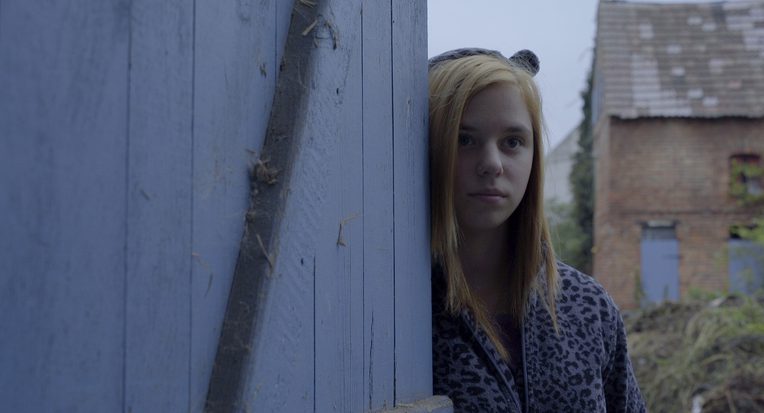
Some bodies run toward loud noises. Others flee from such sounds, running away as fast as they can. Rosa Hannah Ziegler’s Familienleben (2018) incites attention to the most intimate of spaces, such that its soundscape amplifies the quarrels and fracases that inevitably play out therein. The German documentary film opens with a long take of a family argument, pointing to the limits of care and empathy. Sprightly dogs run from and toward the camera with verve and vigor, as though they expect a playful afternoon. Yet, in reality, they respond to a couple of adults who scold each other for three seemingly endless minutes. Then the infuriated, middle-aged man enters a barn, cursing and striking out at every object he encounters.
It’s the first glimpse of Alfred and Biggi, who live together with the latter’s daughters, Denise and Saskia, although they are no longer in a relationship. The opening sequence gestures toward a tangible tension between them, resulting in various disagreements and clashes throughout the film, even as it emphasizes their affection for one another. It’s a precarious family life, not least because properly paid jobs are hard to attain and drugs far easier. With Familienleben, Ziegler works toward an intimate portrait of this hard-working, honest, and warm family—exploring the potential and the margins of observational cinema.

Precarity takes many shapes, and a circle can be one of them. In the words of Alfred:
Imagine that you are inside a circle. There are obstacles everywhere in this circle. The wall around the circle is so high you can’t get over it. You’re stuck inside. And you go another round. Every round you go, the wall grows higher and higher. And all the others are also stuck in there, and the tension, too: it all stays inside the circle. You can’t get out.
At times, Alfred’s home—a farm and a few barns—seems to operate as a circle of this kind. Though sizable, it encloses and suffocates, with only a pastoral idyll of horses and dogs to console him and his family.
This nonhuman consolation is needed: both daughters still recover from having lived in a group home for an extended period of time, while their mother, Biggi, refuses to even look at herself. Her pain reverberates throughout the film, demarcating an afflictive spectrum of motherhood. When she was ten years old, she found out that she was adopted, and her adoptive parents had pressured her birth mother to call her Bigitta instead of Christina. Later in life, while trying to sort through her past, she struggled with alcohol abuse and was charged with a string of minor offenses. She ended up in jail and had to send her own children to a group home, news that she conveyed in a letter to her relatives. Her aunt’s response was crushing: “The next-best tree would still be too good for hanging you.”

Through its acute yet sensitive montage techniques and observational camerawork, Familienleben is as receptive to such dire experiences as a documentary film can be. Ziegler breaks away from sensational and dramatic storytelling, in pursuit of an intimate and careful relationship with the family. Though not formally trained as an anthropologist, she embraces the discipline’s ethos: she takes responsibility for how her presence may affect their well-being, up to the point where she seems to be implicated in their everyday lives. We never hear her voice, nor do we see her amid her interviewees, and yet she’s the person with whom the family members open up and share their most private feelings and stories. In so doing, Familienleben presses closes to the empathetic limits of cinema, for how could spectators—who can afford to watch films on the margins of a society—orient themselves to such emotional density and vulnerability without feeling either useless or intrusive?
Familienleben is a pointed call to action, insofar as it encourages an active stand on housing issues in Europe today. More precisely, the film inverts and thinks through the notion of home, resonating in our age of displacement. Yet where the European conversation about (social) housing still predominantly revolves around the preservation of affordable roofs for those who are marginalized, Ziegler complements such socio-political issues with a filmic glimpse of complex lived experiences and emotional labor. Familienleben advances the idea that domestic spaces are not by definition homely, safe, and comforting. It is a nuanced critique of all too influential architectural works such as Gaston Bachelard’s (1964) The Poetics of Space. In it, Bachelard suggests that the attic is a space to be at peace, just as the kitchen is reminiscent of the smell of one’s mother’s home cooking. But what if the attic is a space of desperation and the wooden kitchen ceiling starts to rot? At what point is one’s home no longer hospitable? And for whom are the sensations of homecoming and homesickness actually desirable?

On the face of it, there is little to suggest that Familienleben is more than an observational portrait film. But this would understate how profoundly generous and affectionate Ziegler is in her depiction of this German family. Against all odds, Alfred, Biggi, Denise, and Saskia strive and aspire—and they have formulated a loving and caring family life to battle these odds. The film notes how humanity may have lost its capacity to provide accommodating (dare one say equal?) opportunities for all, even as it shows the resilience and courage of individuals living in precarious contexts.
References
Bachelard, Gaston. 1964. The Poetics of Space. New York: Orion.